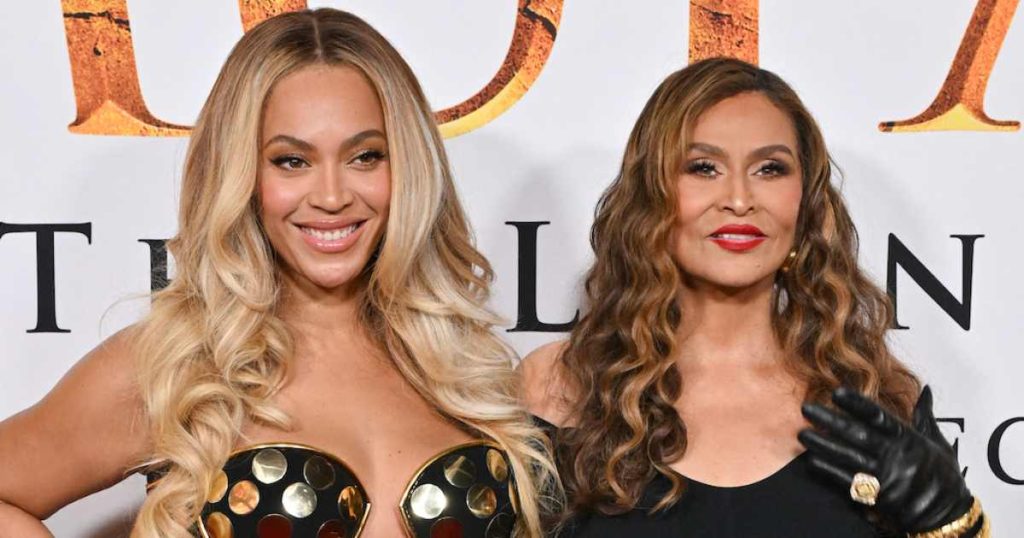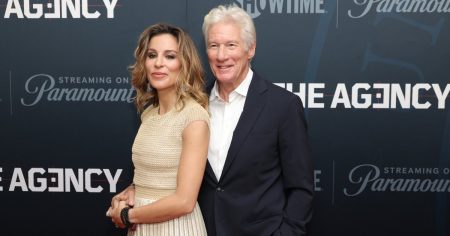Tina Knowles, mother of Beyoncé, fiercely defended her daughter against online criticism following Beyoncé’s Christmas Day halftime performance at the NFL game. Knowles took to Instagram to express her bewilderment at those who spent their Christmas actively seeking out a performance they supposedly disliked, only to subsequently criticize it. She argued that such behavior revealed a deep, albeit perhaps subconscious, admiration and even obsession with the artist. Knowles suggested that these critics should instead occupy themselves with entertainment more aligned with their own tastes, humorously suggesting cartoons or Bozo the Clown. She concluded her post with a declaration of admiration for Beyoncé’s resilience and a biblical quote about overcoming adversity, anticipating the inevitable influx of negative bot comments.
Knowles’ post resonated with numerous celebrities who voiced their support in the comments section. Actresses Viola Davis and Octavia Spencer expressed their agreement with fire emojis, while Uzo Aduba offered a comforting maternal adage. Comedian Loni Love praised the sheer breadth and complexity of Beyoncé’s performance, highlighting the numerous elements seamlessly incorporated within the 13-minute spectacle. Love emphasized the logistical and artistic feat of managing horses, cars, elaborate choreography, multiple guest appearances, and intricate costume changes, all while maintaining a pristine appearance. This, she implied, was a testament to Beyoncé’s talent and professionalism, something her detractors could never achieve.
The reality television world also rallied behind Beyoncé. Kandi Burruss of “Real Housewives of Atlanta” declared Beyoncé’s performance amazing and dismissed any dissenting opinions. Gizelle Bryant of “Real Housewives of Potomac” echoed Knowles’ biblical reference about overcoming opposition. Shea Couleé, winner of “RuPaul’s Drag Race” season 5, praised Knowles’ witty retort suggesting critics watch programs more suited to their sensibilities, interpreting it as a clever way of labeling them as clowns. This collective support from prominent figures across the entertainment spectrum underscored the widespread appreciation for Beyoncé’s performance and the perceived absurdity of the negative criticism.
Beyoncé’s halftime performance, despite the online negativity, proved to be a ratings success, attracting a larger viewership on Netflix than the two NFL games aired on the same day. The Kansas City Chiefs versus Pittsburgh Steelers game drew 24.1 million viewers, while the Baltimore Ravens versus Houston Texans game garnered 24.3 million. Beyoncé’s performance, however, surpassed both with 27 million viewers, demonstrating her enduring popularity and draw. This substantial viewership underscores the disconnect between the vocal online criticism and the broader public reception of her performance. It suggests that while a vocal minority may have expressed disapproval, the majority tuned in and engaged with the spectacle.
Tina Knowles’ impassioned defense of her daughter highlights the complexities of navigating online criticism in the age of social media. Her post served not only as a protective gesture towards her daughter but also as a commentary on the nature of online negativity. Knowles’ argument suggests that such criticism often stems from a complex mix of admiration, envy, and a desire to tear down successful individuals. Her response, while pointed, encourages a more discerning approach to consuming and reacting to online content, emphasizing the importance of focusing on positive engagement and ignoring unproductive negativity.
The outpouring of celebrity support for Beyoncé further underscores her influence and the widespread respect she commands within the entertainment industry. The diverse range of voices speaking out in her defense speaks to the unifying power of her artistry and the sense of community she fosters among her fans and peers. The significant viewership numbers for her halftime performance solidify her status as a global superstar and demonstrate the impact of her work, ultimately overshadowing the relatively small, albeit vocal, contingent of online critics. This episode serves as a reminder that online discourse often amplifies minority viewpoints and that quantifiable metrics like viewership can provide a more accurate reflection of public sentiment.










